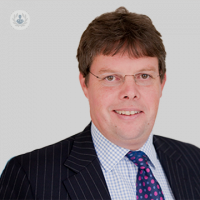Head and neck cancer: how can a clinical oncologist help?
Written in association with:If you have been diagnosed with head and neck cancer, you will be referred to see an oncologist and his team who will devise a treatment plan that is determined by the type and stage of the tumour. We asked one of our top clinical oncologists, Professor Chris Nutting, as to what can be expected exactly.

What are the commonest locations for head and neck cancer?
The commonest tumour sites are in the tongue or mouth and in the swallowing tube (pharynx) or voicebox (larynx). Only tumours of the mouth and tonsil cancers are visible by direct examination.
How do you determine which treatment option is right for head and neck cancer?
Following biopsy to identify the histological type of tumour and staging to determine the extent of the tumour at diagnosis, usually, the main options are between surgical resection or chemo-radiotherapy.
Surgical resection is preferred in patients where the tumour can be easily removed with little cosmetic or functional complications and chemo-radiation is reserved for other patients.
How does a clinical oncologist treat head and neck cancer?
The clinical oncologist is primarily responsible for radiation treatment and chemotherapy. They also participate in the multidisciplinary team with staging, selection of appropriate treatment options and supervision of the treatment itself. Management should be within specialist centres supported by clinical nurse specialists, dieticians, speech therapists and others.
Can some head and neck cancers be cured during early-stages?
The cure rates can be in excess of 90% for some cases. but if the cancer is locally advanced or has spread to lymph nodes in the neck then the cure rate ranges from 40-80%.
You can book an appointment with Professor Nutting via his Top Doctor’s profile here.


